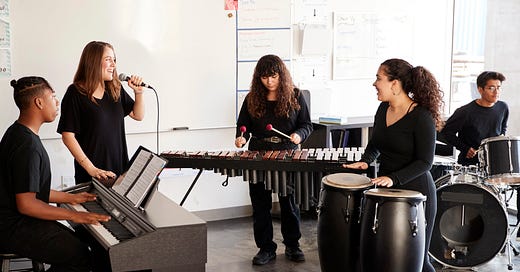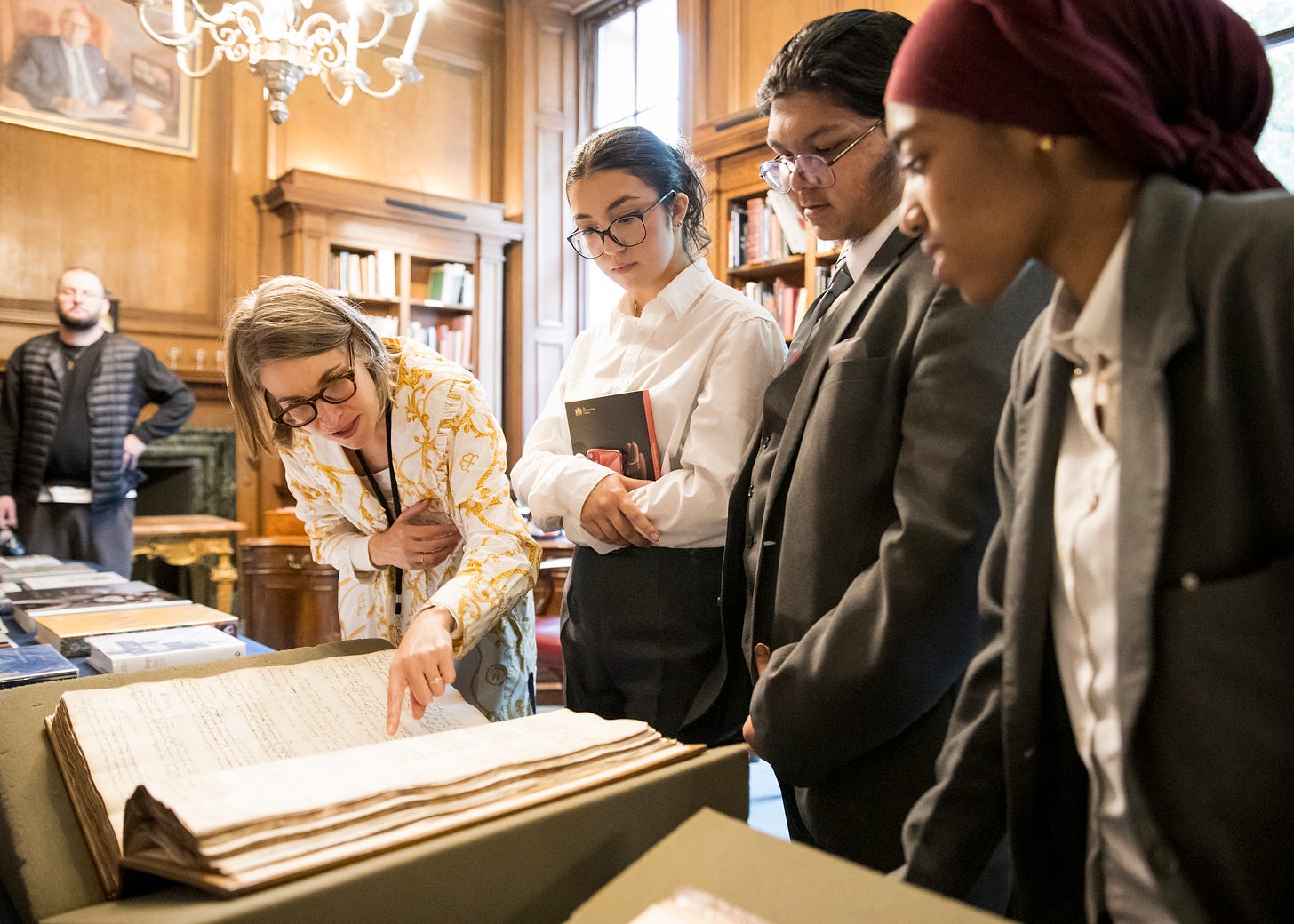Creative Briefing #62
Hello,
Long-time subscribers to this newsletter might notice it looks a little different this month, as we’ve moved over to Substack. This means that as well as getting the newsletter delivered to your inbox, you’ll also be able to read it online or via the Substack app and add your comments. So if you’ve heard about some interesting new research, event or opportunity not included below, please do use the comments box to share it with the UK creative sector community.
Our Place Forum last month looked at some of the changes ahead for people working to grow the creative industries at a regional level, as well as some fascinating case studies from across the UK.
If you missed it, you can now catch up with edited transcripts of our sessions with Professor Katy Shaw on the challenges and opportunities that devolution will present for sector growth, Professor Sara Pepper on the Creative Cardiff Network and Highlands and Islands Enterprise’s Iain Hamilton on supporting rural creative businesses.
The creative industries are among eight sectors with high growth potential identified as a priority in the government’s new national industrial strategy, published this month. At the Place Forum, we heard how the government is asking local authorities to create Local Growth Plans, which would work alongside the national strategy, as part of its mission to devolve more power to local leaders.
Detailed guidance is yet to be published (although the Institute For Government, among others, has put forward recommendations for how they might work).
If your organisation is starting to think about what to include in your Local Growth Plan, here are some resources which may help:
Labour’s Plan for the Arts, Culture and Creative Industries (published in March)
What Works Centre for Local Economic Growth has outlined the three key elements to include in local growth plans and recommendations for gathering evidence.
Centre for Cities has eight principles to guide the creation of local growth plans.
The Local Government Association’s Creative Places guide was published in 2020 and so includes some outdated references, but it still has some useful advice on developing a strategy to support your local creative economy.
Compiling an evidence base will be key to creating effective growth plans, and Arts Council England’s new Culture and Place Data Explorer will help. It gives you access to more than 200 local data points including density of creative businesses and employment.
For inspiration, take a look at West Yorkshire Combined Authority's draft local growth plan. Published in July, the plan has the development of the region's creative businesses and talent at its heart.
Your chance to help shape the future of creative education in schools
As part of the Curriculum and Assessment Review, the Department for Education is holding a series of national roadshow events across each region in England.
Industry experts, parents, teachers, leaders, students and employers are invited to share their expertise and experience to help shape the recommendations.
Attendees will have the opportunity to hear directly from the chair of the Review, Professor Becky Francis CBE, as well as other panel members.
There will be opportunity to ask questions, discuss key topics and themes with other attendees, and feedback your thoughts directly to the panel.
Creative Industries News
Culture Commons has published findings and recommendations from its programme exploring how devolution and increased local decision-making might impact the creative, cultural and heritage ecosystem in the UK. They’re hosting a free webinar on November 5 to present the findings.
Stone carving, tutu making and straw marquetry are among the heritage crafts skills being passed on to a new generation, thanks to a new round of funding bursaries.
A new research laboratory dedicated to conserving moving image collections in the UK is among the beneficiaries of UKRI's £37 million Research Infrastructure for Conservation and Heritage Science programme.
Discover! Creative Careers Week is happening later this month. This industry-led initiative is designed to provide young people with encounters and experiences of the creative industries through in-school, workplace and online opportunities.
CreaTech News
A video metadata extraction tool, virtual tour guides and an automated ad review system are among the creative industry innovations being developed by eight start-ups joining Digital Catapult's High Growth AI Accelerator.
A new guidebook to help marketers use AI in campaigns effectively and responsibly has been published by the Advertising Association's AI Taskforce.
City St George’s, University of London has launched an Institute for Creativity and AI, a new interdisciplinary group formed to research and develop knowledge of co-creative AI technologies.
New initiative to plug skills gap in UK’s historic jewellery industry
A new centre in Birmingham funded by the Goldsmiths’ Company Charity will provide specialist craft and design skills training to young people from year nine through to sixth form. The Goldsmiths’ Institute will open in 2025 at Aston University Engineering Academy (AUEA) as part of a drive to meet growing demand for new talent from jewellery businesses in the UK.
The UK’s first cohort of Jewellery T Level students have already started their studies at AUEA. As part of the curriculum for T Levels (two-year vocational qualifications taken as an alternative to A levels), AUEA is partnering with businesses in Birmingham’s historic jewellery quarter, which dates back to the 16th century.
🌍 Creative Industries Climate Action 🌍
Publishers are shrinking the size and weight of print books to cut costs and lower carbon emissions generated by deforestation, paper production, printing and distribution.
Albert has launched Albert Academy, a hub for sustainability training for the screen industry.
The Institute for Practitioners in Advertising has published a sustainability transformation toolkit for marketing agencies.
The Centre for Sustainable Design has published research on sustainability networks in the creative industries.
A report by Film London and Creative Zero takes an in-depth look at decarbonising supplier transport and mobile power for London’s film and TV industry.
Opportunities
Equaliser Mentorship Programme - year-long programme developing the next generation of live sound professionals from global majority backgrounds with paid work experience, networking and mentoring with professionals at the Royal Albert Hall and Barbican Centre.
New Music Biennial - PRS Foundation initiative supporting music creators who are pushing the boundaries of new music in the UK. Apply by 4 November 2024.
Mindset extended reality (XR) - Innovate UK funding to develop digital therapeutic XR solutions for mental health. Apply by 15 January 2025.
Events
24 October - Creative Corridors launch (online): The RSA, Creative PEC and Arts Council England have partnered to explore the concept of Creative Corridors - joining up existing creative clusters to become more than the sum of their parts through better collaboration and coordination. Now they’re launching a policy framework for action, setting out the underlying case for creative corridors, exploring the opportunities and barriers for growth and laying out practical next steps.
5 November - The Future of Cultural Devolution in the UK (online): launch of findings and recommendations from ‘the future of local cultural decision making’ programme.
6 November - Design for Planet Festival (online): a free day of talks about sustainable design, including a keynote from Great British Spelling Bee presenter and Community Clothing founder Patrick Grant, who'll be talking about regenerative fashion design.
14 November - Clean Fashion Summit (London): annual conference exploring how global and local supply chains can be improved.






